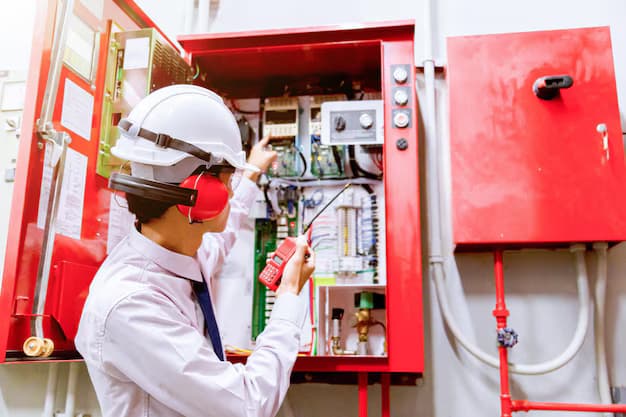Fire safety in buildings is not just about alarms, sprinklers, and extinguishers. It also involves structural systems designed to contain fire and smoke, giving people time to escape and protecting property from widespread damage. These systems are known as passive fire protection, and they are critical in modern construction. However, the effectiveness of these measures depends heavily on proper installation. Choosing the right passive fire protection installer in Birmingham is therefore a crucial decision for building owners, contractors, and facility managers.
This article explores why selecting the right installer is important, what qualities to look for, and how the right choice ensures both compliance and safety.
The Importance of Passive Fire Protection
Passive fire protection is built into a structure to resist fire spread without the need for activation. It works in the background, often unnoticed, but provides vital safety in the event of a fire.
Key Functions of Passive Fire Protection
- Compartmentalising a building to stop fire from moving freely
- Slowing down the spread of smoke, which is often more dangerous than flames
- Protecting structural elements such as steel or timber from early failure
- Extending evacuation time for occupants and response time for firefighters
Common Systems and Materials
- Fire-rated walls, ceilings, and floors
- Fire doors and glazing
- Fire and cavity barriers
- Intumescent coatings on structural supports
- Fire-stopping systems around cables, ducts, and pipes
Why Choosing the Right Installer Matters
Even the best passive fire protection materials will not perform effectively if they are poorly installed. The installer plays a key role in ensuring systems meet safety standards and perform as intended during an emergency.
Compliance with Regulations
Building regulations require that fire protection measures are correctly installed and maintained. A qualified installer ensures compliance with these legal standards, reducing the risk of penalties or enforcement actions.
Long-Term Safety
A reliable installer provides systems that last and remain effective. Incorrect installation may leave hidden gaps that compromise protection and endanger lives.
Financial Protection
Well-installed fire protection helps safeguard assets, lowers insurance risks, and reduces potential repair costs after a fire.
Qualities to Look for in a Passive Fire Protection Installer
When choosing a passive fire protection installer in Birmingham, certain qualities and qualifications should guide the decision.
Relevant Certifications and Accreditations
A trustworthy installer should hold recognized certifications in fire safety and installation practices. Accreditation ensures they meet industry standards and follow best practices.
Experience in the Industry
Years of practical experience in passive fire protection installations provide confidence that the installer can handle both simple and complex projects effectively.
Knowledge of Regulations
An installer must have in-depth knowledge of building regulations and fire safety requirements in the UK, ensuring compliance throughout the project.
Use of Quality Materials
The effectiveness of passive fire protection also depends on the quality of products used. The right installer will source tested and certified materials from reputable manufacturers.
Commitment to Detail
Fire protection requires precision. An installer who demonstrates careful planning, attention to detail, and accurate fitting ensures that no hidden risks remain.
Strong References and Case Studies
Positive feedback from previous clients and evidence of successful projects in Birmingham can help confirm the reliability of an installer.
Steps to Choosing the Right Installer
Making the right choice involves a clear process of evaluation.
Conduct Research
Begin by identifying installers in Birmingham who specialise in passive fire protection. Review their websites, case studies, and available documentation.
Verify Credentials
Ask for proof of qualifications, certifications, and accreditations. Reputable installers will be transparent about their credentials.
Request Detailed Proposals
Obtain quotes and proposals from multiple installers. Look beyond cost and focus on scope of work, quality of materials, and compliance assurance.
Assess Communication
Choose an installer who communicates clearly, explains solutions thoroughly, and answers questions with confidence.
Prioritise Safety Over Cost
Cheaper solutions may cut corners, risking safety and compliance. It is better to invest in an installer who values safety above cost savings.
Mistakes to Avoid When Selecting an Installer
Many property owners and contractors make avoidable mistakes when hiring a passive fire protection installer.
Focusing Only on Price
Lowest cost does not always equal best value. Substandard installation can result in costly repairs and non-compliance.
Overlooking Maintenance Support
Fire protection is not just about installation. Regular inspections and maintenance are necessary. Choose an installer who also offers ongoing support.
Ignoring Local Expertise
Working with an installer familiar with Birmingham’s regulations and building standards ensures smoother compliance and project execution.
The Role of Inspections After Installation
Even with the right installer, inspections remain vital.
Verifying Quality of Work
Post-installation inspections confirm that all systems are correctly fitted and functioning as intended.
Maintaining Compliance
Regular inspections ensure that systems remain effective throughout the life of the building.
Identifying Wear and Damage
Over time, seals, coatings, and barriers may degrade. Inspections help identify issues early so that timely repairs can be made.
Why Birmingham Needs Reliable Fire Protection Installers
Birmingham is a growing city with a diverse mix of high-rise buildings, commercial spaces, industrial sites, and historic structures. Each type of property has unique fire safety needs.
High-Rise Buildings
Fire compartmentation is especially important in tall structures to prevent rapid vertical fire spread.
Historic Properties
Older buildings often require sensitive upgrades to preserve their character while meeting modern safety standards.
Commercial and Industrial Sites
With high occupancy levels and complex layouts, fire safety becomes even more critical in these environments.
Conclusion
Choosing the right passive fire protection installer in Birmingham is not just a matter of compliance but a commitment to safety and responsibility. A skilled and accredited installer ensures that fire protection systems are installed to the highest standard, providing lasting safety for occupants and property. By evaluating credentials, experience, and commitment to quality, property owners and managers can make an informed decision that protects lives and investments.
For professional and reliable support in fire safety, TBL Fire Protection provides trusted solutions for passive fire protection installation in Birmingham.





Comments